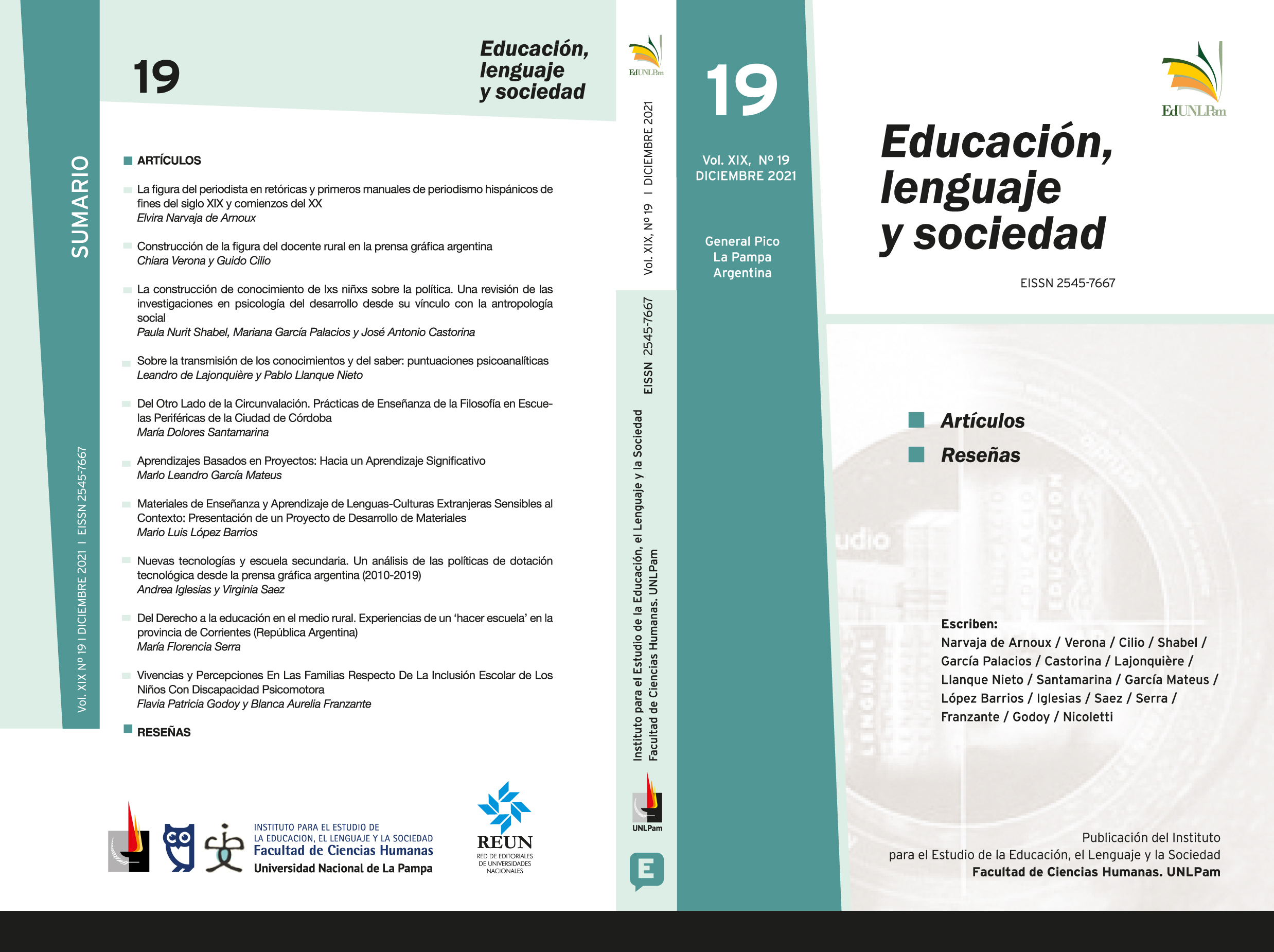Del otro lado de la circunvalación. Prácticas de enseñanza de la filosofía en escuelas periféricas de la ciudad de Córdoba
Palabras clave:
filosofía, enseñanza, posición social, universidad, escuelaResumen
Este artículo sintetiza una investigación exploratoria acerca de la enseñanza de la filosofía en las periferias de la ciudad de Córdoba. Aborda la práctica de la enseñanza con relación a la dimensión estructural y subjetiva. Entiende que la acción de enseñar se desarrolla en un espacio social donde los actores se distribuyen según capitales diversos en función de los cuales se hallan en posiciones dominantes o dominadas. En el acto de enseñar y aprender éstos operan según disposiciones o sentidos prácticos incorporados (habitus) en función de los cuales establecen preferencias, hablan y actúan. Desde este encuadre se problematiza la enseñanza de la filosofía en cuanto un saber producido y reproducido en el espacio académico. Este “microcosmos”-donde reciben su formación disciplinar muchos profesores en ejercicio- se encuentra relativamente autónomo y alejado de “las coerciones económicas” (Bourdieu, 1999). ¿Cuáles son las acciones de enseñanza llevadas a cabo por los docentes de formación universitaria dentro de escuelas con poblaciones sociales dominadas?, ¿Cómo resignifican su trayectoria?, ¿Qué sentido dan a su práctica?, ¿Cómo justifican su enseñanza?
Para la investigación se entrevistaron egresadxs de la Universidad Nacional de Córdoba, docentes de escuelas públicas ubicadas en las afueras de la ciudad de Córdoba, en barrios de “segregación residencial socioeconómica” (Tecco y Valdés, 2010).






21.png)






3.png)

